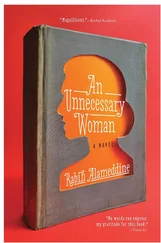“Their skies?” asked Job.
“I loathe eagles,” said Isaac. “Prissy and pretentious creatures.” A popping sound, and Isaac disappeared, and reappeared riding the eagle king’s back. He began to pluck feathers one by one. “This little eagle is prissy,” Isaac sang, “this little eagle is not going to fly, this little eagle thinks it rules the world, this little eagle shall die.” Isaac did not stop until nary a feather was left in its place. The eagle king fell to his death, and Isaac popped back onto his carpet.
And then the head. The hyenas’ den was located in a soft desert between the Euphrates and the Tigris. When the company reached the den, not one hyena was to be found, and Majnoun retrieved his brother’s head.

“The sultan is a pretender,” Arbusto said. “An honorable man metes honors to the deserving, not to his loved ones. The sultanate is being run by whores and thieves and begs to be rescued from its rulers.”
Taboush sat upon his throne and pondered the appalling plight of the world. “I do not know what to do. I do not think warring against one’s people is either auspicious or admirable.”
“A true sultan can distinguish right from wrong,” said Arbusto, “an undeserving one cannot. He dishonors you because he fears you. You are a hero descended from heroes, a king descended from kings. He is but a slave whose luck lifted him to the throne, and the throne weeps while it waits for a worthy occupant. Rise, my lord, and claim what is rightfully yours, if for nothing else than to offer the faithful a commendable leader and a righteous example.”
“I do not know what to do,” said Taboush.
“Call your army. Begin with the city of Aleppo. Once the people see the sultanate’s honest hero, they will declare their allegiance to you. If they do not, we will raze their walls as an example to other cities.” His eyes lit up, and his pupils moved in every direction. “Not only are we going to thrash them in Aleppo, we are going to Damascus and Homs and Hamah, and we are going to Baghdad and Mosul and Jerusalem, and then we are going to Cairo to take back the sultanate. Yeeeeaaaah.”
Taboush did the honorable thing. He wrote a letter to the mayor of Aleppo, warning him of the imminent arrival of the army of Kirkuk. Taboush asked the Syrian city to surrender to his rule, for he did not wish to shed blood. And the mayor of Aleppo sent a message to King Baybars. “Prepare the army,” commanded the sultan. “Black days are upon us. Sons will fight their fathers, and brothers will fight brothers. Dispatch a letter to the Fort of Marqab, since the sons of Ishmael are the closest fighters to Aleppo. Inform my brother Ma  rouf of this calamity.”
rouf of this calamity.”
And when Ma  rouf read the letter, he smote his head. “The Day of Judgment nears.”
rouf read the letter, he smote his head. “The Day of Judgment nears.”
“My heart aches.” Taboush stood with his army before the gates of Aleppo.
“The honorable course is rarely easy, and a hero always suffers,” said Arbusto.
The defenders of Aleppo cheered as the sons of Ishmael appeared on the horizon, trumpeting the songs of war. The warriors lined up, and their hero rode out toward the invading army and cried, “Return to your homes. I will defend this faithful city unto my death.” And Taboush recognized the voice of his father.
“Send a warrior to kill him,” said Arbusto.
“None but I will stand before my father,” said Taboush, as he jumped on his stallion.
“What are you doing, my son?” Ma  rouf asked.
rouf asked.
“I seek to displace a usurper,” said Taboush.
“The suit of the dupe does not become you. The honorable sultan is our rightful lord.”
“Move aside, Father, for I have no wish to fight you.”
“I shall not,” replied his father. “No one passes while I still breathe.” And neither father nor son moved, but stayed face to face for hours and hours, neither looking away nor surrendering, until the sun finished its daily pilgrimage, for no day is so long that it is not ended by nightfall.

Back in Hannya’s lair, Majnoun, Fatima, and the imps put Layl back together. Adam laid the torso down, Elijah fastened one leg and Noah the other, Job and Jacob secured the arms, and Ezra attached the head. Majnoun returned the heart to its place and watched it glow and glimmer before tuning itself to a normal pulse. Fatima closed the wound and cleaned it.
“Something is missing,” said Ishmael. “He is not whole.”
Elijah said, “He has his penis but no …”
“Testicles,” said Majnoun.
“Bring me that sycophant,” ordered Fatima. “It is time to deal with the mother of betrayal.”

Taboush polished his swords.
“You must kill your father,” said Arbusto. “You cannot fulfill your destiny otherwise He is as stubborn as you are. You are both cut from the same inflexible cloth.”
“I will not.”
During the dark night, Arbusto infiltrated the camp of the sons of Ishmael disguised as a Muslim cleric, and in the morning, he approached Ma  rouf as the hero mounted his horse. Arbusto offered him a cup of soup and said, “Drink this, my lord. It will give you strength.”
rouf as the hero mounted his horse. Arbusto offered him a cup of soup and said, “Drink this, my lord. It will give you strength.”
“I have the strength I need,” replied Ma  rouf.
rouf.
“Then drink this because it tastes good.”
And Ma  rouf drank the poison before riding to meet his son.
rouf drank the poison before riding to meet his son.
“Move aside, Father,” his son said.
“You will have your wish.” Ma  rouf swayed upon his horse. “I have been poisoned. Soon I will breathe no more, and you will be able to pass.”
rouf swayed upon his horse. “I have been poisoned. Soon I will breathe no more, and you will be able to pass.”
Taboush watched his father collapse off his horse and die. Grief and guilt, the inseparable siblings, blighted the son. He rued his stupidity, his pride and impetuousness, and the day he arrived in this world. He wailed, mourned, and suffered.
“Bring me the evil one,” Taboush commanded.
When Baybars arrived, he did not find an invading army or a raging battle. He found a contrite hero genuflecting, the corpse of his father on his right and Arbusto in chains on his left. “I have committed sins,” Taboush said.
The chief of forts and battlements was buried with full pomp and colors. The funeral lasted three days. After the mourning, Baybars called on the diwan.
“I can no longer be king,” Taboush said. “I should not exist among the living. I have failed my father. Justice must be served. I cannot walk among honorable men any longer. I will leave the lands of the faithful and seek exile until my soul is cleansed.”
“Stay not away for long,” said Baybars. “Your home always beckons.”
And Taboush walked away. East was his direction; forgiveness and exculpation, his goal.

The emir’s wife no longer dared to set foot in the sun temple proper. She was not afraid of violence or violation — her people were too sweet — but she was terrified of being seduced into the bacchanal. When the prophet made his glorious appearance in the temple, a multihued orgy had erupted, and it had not stopped or decreased in intensity since. The liveliness, the combinations, the positions. The emir’s wife had tried to stop it the first day, but as she began to talk to the seekers, one handsome supplicant, in the throes of receiving oral pleasures, touched her calf, and the bliss was so intense she felt her robe slowly slip off her shoulders. She had rushed out of the temple, and had spent every waking second since peeking from behind the sun altar. Her prurience was in full flowering bloom. The liveliness, the combinations, the positions.
Читать дальше


 rouf of this calamity.”
rouf of this calamity.”










